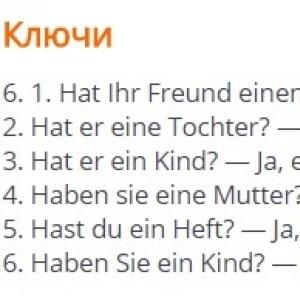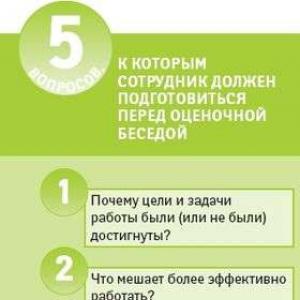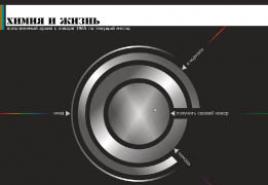Similar words. Paronyms Close in sound
Words with the same root that are close in sound but do not have the same meaning (recognise - recognize, dress - put on, signature - painting) are called paronyms. Paronyms, as a rule, refer to the same part of speech and perform similar syntactic functions in a sentence.
Paronyms are partial sound similarity of words with their semantic difference (complete or partial). Paronyms with the same root are mostly close in meaning, but differ in subtle shades of meaning. For example, the paronyms simplify and simplify have the general meaning of “make simpler,” but the second of them is characterized by an additional connotation of “simpler than it should be.”
Paronyms may not coincide in all, but only in some meanings. For example, diplomatic and diplomatic coincide in the meaning of “subtly calculated, dexterous, evasive,” but at the same time diplomatic also means “relating to diplomacy, to a diplomat.”
Paronyms that are the same or close in meaning may differ from each other in the methods of management, lexical compatibility, functional-style coloring, sphere of use, syntactic function. For example, the paronyms pay - pay differ in the method of management: pay for care, pay the bill (prepositional management), pay the bill, pay expenses (non-prepositional management).
Paronymy underlies the creation of a special style of technique - paronomasia, the essence of which is the deliberate bringing together of consonant words: And deaf and stupid; The husband takes the wood, and the wife takes care of the yard; The classics should not only be read, but also read. A bright style effect is created as a result of the juxtaposition of paronyms. For example, many proverbs and sayings are built on this counterpoint: Truth is born in a dispute, not in a quarrel;
Examples of paronomasia - “There is no point in pitying or complaining about them.” (A. S. Pushkin, “The Captain’s Daughter”)
Modern dictionaries of paronyms
Dictionaries of paronyms, describing somatic connections of words similar in form and consonance, are a relatively young type of lexicographic publications. The first was the dictionary-reference book “Difficult cases of using cognate words of the Russian language” by Yu. A. Belchikov, M. S. Panyusheva. Examples: inhale-sigh, put on-dress. This dictionary explained the meanings of these words and gave combinations. The dictionary of paronyms in modern Russian by the same authors contains more than 200 paronymic series.
“Dictionary of paronyms in the Russian language” by N. P. Kolesnikova, “Dictionary of paronyms in the Russian language” by O. V. Vishnyakova describes paronyms belonging to one part of speech, having stress on one syllable (now-now). The same author compiled a manual for students, “Paronyms of the Modern Russian Language.” “Educational Dictionary of Paronyms” (M., 2005) by L. A. Vvedenskaya, N. P. Kolesnikova.
Antonyms are words of the same part of speech, different in sound, having directly opposite meanings: truth - lie, good - evil, speak - remain silent.
Antonyms according to the type of concepts expressed:
contradictory correlates - such opposites that mutually complement each other to the whole, without transitional links; they are in a relation of private opposition. Examples: bad - good, lie - truth, living - dead.
contrasting correlates - antonyms expressing polar opposites within one entity in the presence of transitional links - internal gradation; they are in a relation of gradual opposition. Examples: black (- gray -) white, old (- elderly - middle-aged -) young, large (- average -) small.
vector correlates are antonyms expressing different directions of actions, signs, social phenomena, etc. Examples: enter - exit, descend - rise, light - extinguish, revolution - counter-revolution.
Conversions are words that describe the same situation from the point of view of different participants. Examples: buy - sell, husband - wife, teach - learn, lose - win, lose - find.
enantiosemy - the presence of opposite meanings in the structure of a word. Examples: lend someone money - borrow money from someone, surround someone with tea - treat and not treat.
pragmatic - words that are regularly contrasted in the practice of their use, in contexts (pragmatics - “action”). Examples: soul - body, mind - heart, earth - sky.
Oxy?moron - a steal figure or a steal error - a combination of words with the opposite meaning (that is, a combination of incompatible things). An oxymoron is characterized by the deliberate use of contradiction to create a stylistic effect. Oxymoron is often used in the titles and text of prose literary works and films: “Endless Dead End”, “Ordinary Miracle”. Used to describe objects that combine opposite qualities: “masculine woman”, “feminine boy”. In the novel Foucault's Pendulum, Umberto Eco's characters fantasize about a "university of comparative irrelevance" with a department of oxymorism. As subjects of study of this department, the author cites “urban studies of nomadic tribes”, “folk oligarchy”, “innovative traditions”, “dialectics of tautology”, etc.
Details Category: “The great, powerful and truthful Russian language” Published 02/27/2016 12:20 Views: 5362Words that have a similar lexical meaning, but different in sound and spelling, are called synonyms.
The “Encyclopedic Dictionary” of Brockhaus and Efron defines synonyms as “words of close, adjacent, almost the same meaning.” The term “synonym” comes from the Greek synõnymos – “of the same name”.
Synonyms mostly belong to the same part of speech.

Examples of synonyms in Russian: enormous - huge; bug - booger; hurry - hurry up.
Types of synonyms
Synonyms may absolute(full). Their meanings coincide completely: everywhere - everywhere; in a hurry - in a hurry; throw - throw.
The following words can be absolute synonyms: title - title; tiny - tiny; shut up - shut up - shut up; everywhere - everywhere.

There are not so many absolute synonyms in the language; usually synonyms still differ in their special shade of meaning, such as color: red – scarlet – crimson – crimson.
But there are words whose meanings may not completely coincide. Such synonyms are called ideographic(or conceptual).
Here is an example: the words “carry” and “drag”. They have a general meaning in a certain context, for example when expressing the concept “with great effort.”
Carry a heavy bag - drag a heavy bag;
carry a heavy log - drag a heavy log;
carry a heavy suitcase - drag a heavy suitcase.
But if you need to say “she was carrying a plate,” then in this context the word “carry” cannot be replaced with the word “drag”, i.e. in this context, the words “carry” and “drag” will not be synonymous.
Conceptual synonyms are also called quasi-synonyms(from Latin quasi “as if, as if.”
Stylistic synonyms differ in stylistic coloring. One word can be stylistically neutral, while another can have a stylistic connotation (have a positive meaning, relate to book vocabulary or colloquial vocabulary, etc.).
Sleep(neutral) – rest(book) – sleep(colloquial).
Steal(neutral) - kidnap(book) – steal(colloquial) – steal(colloquial).
Stylistic synonyms may differ in the degree of modernity of the word:
speaker - vitiya; this one - this one.
Synonyms can relate to different areas of use: literary or professional language; to dialect language; to jargons, etc.: cook - cook(marine); jaundice – hepatitis(honey.); rooster crows(dialect.).
Synonyms form synonymous series of two or more words. In the synonymous row, the main word (dominant) is highlighted. It most fully conveys the general meaning of the synonymous series and usually belongs to stylistically neutral vocabulary.
Doctor– doctor – healer – aesculapian.
What are synonyms for?
Synonyms serve to increase the expressiveness of speech and help avoid its monotony. In this case, stylistic synonyms are very helpful.
How do synonyms arise in a language? 
The language is constantly enriched with synonyms. We talked about the fact that language is a developing phenomenon, a living organism. He is sensitive to all changes occurring in society (read). In addition, language development has its own laws.
The formation of new synonyms is combined with the reverse process - differentiation of synonyms continuously occurs until they completely lose their synonymy. For example, before the word "work" was used not only in the meaning of “work”, but also in the meaning "disaster, illness, suffering". Currently, this synonymy has been lost.
Synonyms arise in different ways.
1) For example, as a result of changing the meanings of words: earlier the word "master" denoted class affiliation. Now this word has the meaning of “a person who avoids work.” So the word "master" has become synonymous with the word "slacker".
2) A synonym may appear as a result of the formation of a new word: potato - potato.
3) As a result of borrowing: export - export; prove - argue; add up - add up.
Here again we can recall the borrowings that gave rise to so much controversy. These disputes continue to this day. Read the article “Shishkov, I’m sorry: I don’t know how to translate.” “Pushkin, saying “no one could find in her what is called autocratic fashion in high London circles.” vulgar", could not convey the English word more accurately to the Russians; subsequently it is in Russified form "vulgar" entered the Russian language and became synonymous with a number of related words: trivial, banal, vulgar, hackneyed etc. (Encyclopedic Dictionary of Brockhaus and Efron).
4) As a result of the penetration of professional words, dialectisms, jargon into the literary language: thief - swindler - mazurik.

There are dictionaries of Russian synonyms from various authors. They contain synonymous rows with a dominant word. The meanings of synonyms, features of their combination, stylistic coloring, scope of use, examples of use in texts, etc. can be indicated.
II. The main stage of work
Goal: development of phonemic awareness.
Differentiation of words that sound similar:
Game "The toy is wrong"
Equipment: child’s favorite toy.
Description of the game: the speech therapist explains to the child that his favorite toy heard that he knows a lot of words. She asks him to teach him how to pronounce them. The toy has difficulty hearing, so it asks to pronounce words clearly and loudly. She tries to imitate the child in the pronunciation of words, but sometimes she replaces one sound with another or calls another word. The child listens more carefully to words and corrects mistakes.
This game can be offered as part of an individual lesson on the development of phonemic awareness.
Game "Attentive Ears".
Goal: development of phonemic perception, differentiation of words that sound similar.
Equipment: subject picture depicting a carriage.
Description of the game: the speech therapist asks the children to raise their hand if they pronounce a word incorrectly, and if they pronounce it correctly, clap their hands. The speech therapist pronounces: wagon, bottle, corral, wagon, wagon...
Such a task can be offered in the main part of a frontal or individual lesson, for example, when studying the topic “Action Words”.
Game "Remember the words."
Goal: development of phonemic perception, differentiation of words that sound similar.
Equipment: pictures whose names are similar in sound (cancer, poppy, house, smoke, lump, cat, juice).
Description of the game: the speech therapist names a few words (com, cat, juice). The child must put the named pictures in the given sequence.
This game can be offered in the main part of a frontal or individual lesson. For example, when studying the topic “Getting to know the proposal”, you can offer pictures: fox, beets, onions, oak, plum, rose, bough. At the end of the game, you can ask the children to divide the pictures into three groups: what can be seen in the forest, in the garden, in the vegetable garden.
Game "Listen, Look"
Goal: development of phonemic perception, differentiation of words that sound similar.
Equipment: subject pictures of a teddy bear, a bear, a girl.
Description of the game: the speech therapist puts pictures on the board and gives the task: “I will name two words. Repeat only the word that has a picture.” The speech therapist names pairs of words: bear - fly, Mashenka - cherry, Mishutka - lattice.
This game can be offered at the organizational moment of a frontal lesson on the topic “Sounds [m], [m×].” Then you can conduct psycho-gymnastics by asking Mikhail Potapovich to portray an angry bear; show how scared Mashenka was when she saw Mishutka; How happy her parents were about Mashenka’s return.
Game "Elephant Racing"
Goal: development of phonemic perception, differentiation of words that sound similar.
Description of the game: the speech therapist invites children to “turn their hands into elephants” (the index and ring fingers are the front legs of the elephant, the thumb and little finger are the hind legs, the middle finger extended forward is the trunk; the elephant walks by rearranging its “legs”; the trunk cannot touch the ground) . The speech therapist offers the elephants a walk, but warns the children that they should freeze when they hear the word “stop.” The speech therapist pronounces the words: elephant, moan, stop, flow, stop, stand, knock, hear, elephant, stop, chair, stop, stop. The child whose elephant was the most attentive wins.
This game can be offered during finger gymnastics in a frontal lesson.
Game "Forbidden Word"
Goal: development of phonemic perception, differentiation of words that sound similar.
Equipment: ball.
Description of the game: children stand in a semicircle, the speech therapist invites them to catch the ball and at the same time listen carefully to what words he says. If the speech therapist says the word “ball,” then you cannot touch the ball. Possible set of words: doctor, ball, rook, oven, ball, lie down, hide, mother, ball...
This game can be offered during a dynamic pause in a frontal or individual lesson.
Words with the same root that are close in sound but do not have the same meaning (recognise - recognize, dress - put on, signature - painting) are called paronyms (from the gr. para - near, onyma - name). Paronyms, as a rule, refer to the same part of speech and perform similar syntactic functions in a sentence.


A2. In which sentence should we use COMICAL instead of the word COMIC? 1) In life, the completely comic and the completely tragic are rare. 2) The audience immediately liked Beaumarchais's comic opera. 3) The actor’s comic gesture caused laughter from the audience. 4) This clown has a COMICAL expression on his face.

1. We differentiate the lexical meanings of paronyms by selecting synonyms, antonyms or phrases. 2. We carry out a semantic analysis of sentences. 3. Determine the correct answer. We carefully read all the sentences, three of them will be somewhat similar: either the highlighted words will be directly related to the noun from which they are derived (democratic related directly to democracy, military to war, etc.), or, conversely, one of the words will be directly related to the noun, but the other three are not. But if you suddenly encounter words like subscriber, subscription, then this algorithm will no longer work. Here you will have to apply the method of elimination and logical reasoning. Note. By delimiting lexical meanings in this task, you can avoid errors associated with certain similarities in sound, morphemic structure and grammatical features of paronymous words.

Anecdotal anecdotal, artistic artistic, archaic archaic, irresponsible irresponsible, grateful grateful, swampy swampy, everyday everyday, age-old eternal, great-majestic, guilty guilty, hostile enemy, water water, military military, educational educational, shake shake, every kind, elective selective, harmonic harmonious, major capital, annual yearling, pride pride, humane humanitarian, double bifurcated, actual effective active, demonstrative demonstrative, diplomatic diplomatic, diplomat diplomat, gullible trusting, life worldly, evil malicious, banner sign, engineering engineering, information informative , information informatization, skillful artificial, stone stony, inert bone, horse horse, conservation conservation, colorful coloring, icy ice, intolerant intolerable, dangerous wary, master acquire, condemnation discussion, fearful frightened frightened, imagine provide, respectful respectable, irritation irritability, hidden secretive, tactful tactical, technical technical, lucky - successful, actual factual, master's economic.


In which sentence should we use DIPLOMANT instead of the word DIPLOMAT? 1) Leonid Ivanovich was considered a real DIPLOMAT in communicating with people around him. 2) The success of a state’s foreign policy largely depends on the experience and talent of DIPLOMATS. 3) You sound like a DIPLOMAT, but things are not going well. 4) DIPLOMATS of the Moscow Ballet Competition took part in the final concert.
Aquatic – 1) Peculiar to water, characteristic of it. 2) Living, growing in water. 3) Intended for navigation, associated with communication by water. Aquatic - 1) Living, growing in water, living on water, near water. 2) Carried out with the help of water, driven by water or the force of falling water. Designed for movement on water.

In which sentence should we use WATER instead of the word WATER? 1) Near the grassy bank, invisible flies and WATER beetles draw complex shapes on the river surface. 2) In rainy weather, the flower stores moisture and can survive on its WATER reserves for a long time. 3) WATER carnivals have become popular, especially among young people. 4) Ill-conceived reclamation has disrupted the WATER balance in our area.

1) Gregory was an unusually talented and interesting person, although he was considered an ETERNAL student. 2) Dry pine forests on the banks of the river mixed with ETERNAL oak groves, with thickets of willow, alder and aspen, 3) Polina Ivanovna hid these letters for ETERNAL storage in an antique closet. 4) The author wanted to write about the joys and difficulties of the writer’s ETERNAL work on the word, on style.
ETERNAL adj. 1) Infinite in time, having neither beginning nor end. // Time-independent, time-invariant. 2) Enduring, not ceasing to exist for many years, centuries. // Persistent for centuries. // Not limited to anything. terms, unlimited. // Lifelong, lifelong. // Immortal. // 3) Operating for a long time. 4) Constantly existing, located somewhere. in nature. 5) Constantly doing the same thing or being in the same state, position. 6) Constant, unchanging. // decomposition Constantly used (about clothing, about household items). // decomposition Constantly repeating; incessant. CENTURY adj. Living, existing, lasting for centuries, for a very long time. // Very old, ancient. // decomposition Long-standing, old.
1) Gregory was an unusually talented and interesting person, although he was considered an ETERNAL student. 2) Dry pine forests on the banks of the river mixed with ETERNAL oak groves, with thickets of willow, alder and aspen. 3) Polina Ivanovna hid these letters for ETERNAL storage in an antique closet. 4) The author wanted to write about the joys and difficulties of the writer’s ETERNAL work on the word, on style.


1) The words of a weak-willed person never turn into actions, into ACTIONS. 2) This young man is capable of noble ACTS. 3) The guys enthusiastically discussed the selfless ACTION of their classmate. 4) In former times, students were punished with soldier service for great actions.




HOSTILE adj. 1) Filled with enmity, hostility. // Expressing hostility. 2) Unkind, hostile, seeking to cause harm. // In a state of hostility; hostile, hostile. ENEMY adj. 1) Correlative in meaning. with noun: an enemy associated with him. 2) Characteristic of the enemy, characteristic of him. 3) Belonging to the enemy.
1) Oksana was ready for anything, but still did not expect such a dry, even HOSTILE reception. 2) In this capricious air there was the elegance of the south, its emphasized beauty HOSTILE to the north. 3) A HOSTILE regiment was stationed around this settlement. 4) In folk tales, animals sometimes act as a HOSTILE force that is dangerous to people.
1. In which sentence should you use VOINSKIY instead of the word MILITARY? 1) Fedorov was a MILITARY man and had a good idea of what trials lay ahead for the soldiers of his regiment. 2) For his bravery he received another MILITARY rank. 3) He experienced a lot in life, but managed to maintain a MILITARY bearing. 4) The MILITARY industry of this country is very developed.
2. In which sentence should you use BUDNEY instead of the word BUDNAL? 1) One day, on a weekday morning, my grandfather and I were shoveling snow in the yard. 2) From one EVERYDAY environment it would be necessary to drag her into another that is the same or even more monotonous and boring. 3) This artist devotes significant space to depicting the EVERYDAY side of war. 4) “So we have arrived home,” the captain said in a different, everyday voice.

3. In which sentence should we use SUBSCRIBER instead of the word SUBSCRIPTION? 1) I found an expired library subscription that was lost six months ago. 2) SUBSCRIPTIONS of the telephone network are required to pay for the services of the station. 3) We purchased SUBSCRIPTIONS to the museum for a series of lectures on Russian painting of the 19th century. 4) Sale of SUBSCRIPTIONS to the swimming pool is open.
4. In which sentence should we use EFFECTIVE instead of the word EFFECTIVE? 1) The circus performers developed an EFFECTIVE trick for the performance. 2) Countess Orlova, an EFFECTIVE woman, always attracted the attention of others. 3) The reader’s performance was memorable and EFFECTIVE. 4) In addition to surgery, doctors suggested other EFFECTIVE methods of treatment.
5. In which sentence should we use LONG instead of the word LONG? 1) LONG sleeves of clothing prevented a person from working. 2) The LONG alley ended in a dead end. 3) The awkward LONG guy immediately attracted the attention of the commission. 4) His vacation turned out to be LONG and interesting.
Lexical norms (use of words).
This task tests your ability to distinguish between paronyms.
Paronyms- words that are similar in sound and spelling, but different in meaning.
Lexical norms The Russian language refers to the rules for using words and phrases in strict accordance with their meanings. Violation of lexical norms leads to the fact that statements become ambiguous, as well as to serious speech errors. Compliance with the lexical norms of the Russian language presupposes the ability to choose the right word from a number of similar or identical in content, i.e., synonymous words, as well as the ability to distinguish between paronymous words.
Paronyms are:
prefixes;
suffixal;
distinguished by final letters.
Prefix paronyms.
In task A2 they occur quite rarely, so they are not so difficult to remember.
Distinguish!
| U pay - Give, contribute (money) in compensation for something (most often we are talking about a large sum of money) | ABOUT pay - Pay for something |
| ABOUT kid someone | On put it on yourself |
| Prev put - Present, communicate something to someone. To introduce someone, to give them the opportunity to get acquainted with something. Having found something worthy, to petition for something | Predo put - To put something at the disposal of someone, for the use of someone. To give someone the opportunity to say, do something, or dispose of something. |
| IN shake off - Lift it up and shake it with force. | Shake off - Shake, throw off, throw off. |
| By Verification - Reconciliation exactly. Roll call to check the available composition of people (special). | About verification - Establishing the correctness of something, the correspondence of something to something. |
| About judge - To analyze, think about, thoroughly consider, expressing your thoughts about something or someone. | ABOUT judge - Express disapproval of someone, recognize something as bad. To sentence someone to some kind of punishment, to pronounce a guilty verdict, to accuse. |
| Intolerant - someone who cannot be tolerated, unacceptable. Not taking into account other people's opinions, devoid of tolerance. | Not With tolerable - Exceeding patience, difficult to bear. |
| ABOUT squeak - An error in the spelling of something. by absent-mindedness. | From squeak - A formal answer that does not affect the essence of the matter. |
Suffix paronyms.
Rule.
Most paronyms are associated with the difference between the same root adjective and participle.
Remember!
Suffixes –USH-/-YUSH-, -ASH-/-YUSH- refer to participle suffixes and indicate the producer of the action.
COLORFUL. Features bright colors.
DYING. Serving for coloring something, containing paint (special).
Differing in ending letters.
| Base- Foundation, basis. support for something; strong point. Warehouse, storage or supply point. | Basis– A set of historically determined production relations that form the economic structure of society and determine the nature of the superstructure. |
| Subscriber– The owner of the subscription (person or institution). | Subscription– The right to use something for a certain period, as well as a document certifying this right. |
| Ignorant- Rude, ill-mannered, impolite person. | Ignorant– Poorly educated person, ignorant; a person ignorant of any field of knowledge, layman. |
| Destination– The person to whom the postal item is addressed (person or institution). | Addressee– The one who sends the postal or telegraphic item (person or institution) |
| Diplomat– An official engaged in diplomatic activities and work in the field of foreign relations. | Diploma holder– A person awarded a diploma for successful performance at a competition, festival, etc. A student preparing a final or diploma thesis. |
Remember!
This chapter does not present all the examples that are possible in task A2. More often than not, you will have to look in a dictionary to determine the meaning of words.
Algorithm of actions.
1. Determine what part of speech the paronymous words are.
2. Read the sentences carefully. Maybe you will find something in common in the words that are combined with paronyms.
3. Think about what word they can be formed from. Perhaps the difference lies in the fundamentals!
4. Look at what part of the word the words differ in: prefix, suffix, etc.
5. If possible, remember the differences in meaning.
Remember! If you suddenly come across words like subscriber – subscription, this algorithm will not work.
Analysis of the task.
In which sentence should the word HOSTILE be used instead of the word HOSTILE?
1) Animals and plants sometimes act as HOSTILE forces in fairy tales.
2) He found himself in a world HOSTILE to him.
3) The tank division managed to break the HOSTILE enemy defenses.
4) They were not prepared for such a HOSTILE reception from the local residents.
Hostile And hostile belong to paronyms - adjectives. Let's try to figure out what word(s) they are formed from.
Hostile – enmity(hostility, mutual hatred, hostile relationship) + suffix - ebn-. Meaning - expressing a hostile attitude.
Hostile – enemy(a person fighting for other, opposing interests, opponent) + suffix – esk-. Meaning - belonging to the enemy.
This means that paronyms are formed from different words, therefore the difference should be sought based not so much on the suffixes, but on the basis of the words.
In options No. 2, 3, 4, the context expresses the attitude: in hostile world, hostile defense, hostile reception. And in option No. 1, according to the context, affiliation should be indicated: instead of hostile forces must speak enemy forces.
Thus, correct option number 1.
Practice.
1. In which sentence should we use DIPLOMANT instead of the word DIPLOMAT?
1) Leonid Ivanovich was considered a real DIPLOMAT in communicating with people around him.
2) The success of a state’s foreign policy largely depends on the experience and talent of DIPLOMATS.
3) You sound like a DIPLOMAT, but things are not going well.
4) DIPLOMATS of the Moscow Ballet Competition took part in the final concert.







